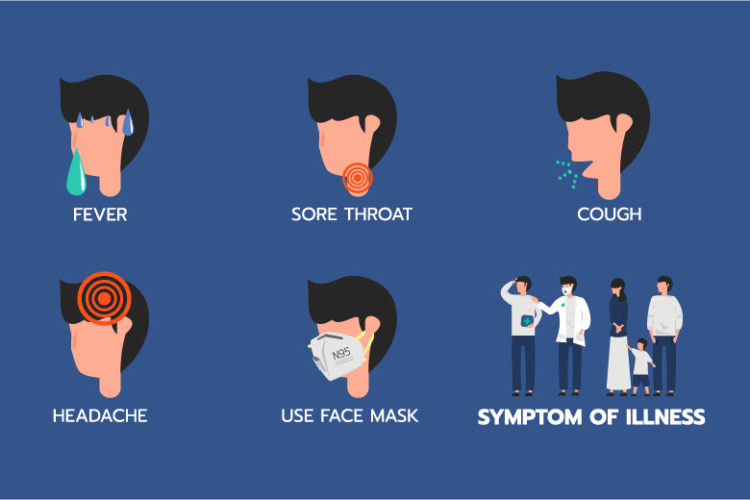Information is critical in tracking the coronavirus and its impact.
The data can be vital in responding to future outbreaks, according to UWM researchers who are helping local hospital systems evaluate the accuracy of a new screening tool they are using.
Subarna Paul, a doctoral student in biomedical and health informatics in the College of Engineering & Applied Science, is working with emergency rooms at Ascension Columbia St. Mary’s in Milwaukee and Ascension St. Joseph Milwaukee to evaluate how well the new tool works. The tool is embedded in hospital patient data software: St. Mary’s uses the Cerner software system; St. Joseph, the Epic system.
Paul is working with sub-investigator Min Wu, associate professor and chair of the Department of Health Informatics and Administration in the College of Health Sciences.

The three-question assessment tool for coronavirus the hospital systems introduced in mid-March is based on Centers for Disease Control and Prevention guidelines, asking questions about symptoms and whether the patient has been out of the country or in contact with others who’ve been diagnosed as positive for the virus. Based on this information, the system flags those who may be at risk of coronavirus with an automatic alert, and they are referred to their health care provider for evaluation or further testing.
The researchers will collect data over a period of three weeks from patient charts of those who received an alert but haven’t yet been tested. The researchers will then follow the patient outcomes to measure how sensitive and specific the screening tool was. Patient privacy will be protected by using numbers rather than names.
“We need to find out how many tested positive for the coronavirus, how many tested negative, whether they had COVID-19 disease, flu, other upper respiratory tract infection or no illness,” Paul said. The study will also look at the diagnosis methods, treatment and the outcomes for those who eventually test positive for the virus, as well as the numbers of negatives and false positives.
In addition to her doctoral work at UWM, Paul is a clinical research specialist at Ascension All Saints in Racine, helping carry out research projects. Her hospital work helped fuel her interest in the field of public health informatics and in this particular project.
“With this disease spreading so quickly, I wanted to see if there was something we could do to mitigate the progress of this disease and discover more about how it works and what we can do better to screen those patients before they are symptomatic,” she said.
The data collection will start in a few weeks, said Wu, as soon as all necessary agreements between UWM and the hospital systems are in place. The researchers estimate it will take three weeks to collect enough data for an accurate sample size.
While the initial phase of data collection will look at the accuracy of the current screening tool, the research could expand in the future to explore more aspects of testing and outcomes, he added.
“We want to analyze and publish the data and share the best practices,” said Wu. “The screening tool is part of the clinical guidelines so we want to evaluate and share these innovations with more people. For example, it can be used in telemedicine practices.”
With the data, future research and surveys could look additional information like people’s health behaviors and how they seek information before they go to the ER, Wu said.
“The screening tool is the first step,” he said. “The ultimate goal is the early detection. If we know their health behavior changes, we can intervene earlier before they go to the hospital with severe symptoms.”








